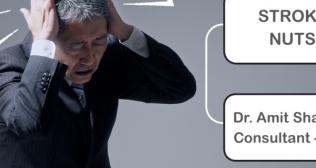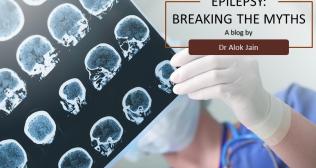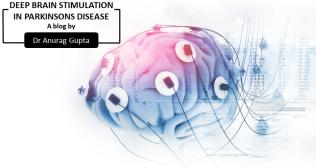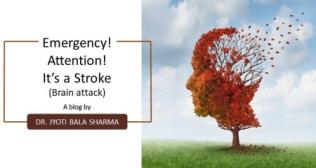
Motor Neuron Disease: Causes, Types, Symptoms, and Treatment Explained
Every simple action we take from walking and talking to breathing and swallowing is controlled by a complex communication network between our brain and muscles. This network is run by specialized nerve cells called motor neurons. When these cells begin to fail, the consequences can be profound, leading to a group of conditions known as Motor Neurone Disease (MND).
Receiving a diagnosis of MND can be overwhelming for patients and their families. It is a journey that requires courage, support, and, most importantly, clear information. This guide aims to provide a comprehensive understanding of this complex condition, covering its causes, types, symptoms, and the treatment approaches that can help manage it.
What Is Motor Neuron Disease?
Motor Neurone Disease is a rare, progressive neurodegenerative condition that affects the nerve cells (neurons) responsible for controlling voluntary muscle movement. These motor neurons act as messengers, carrying signals from the brain and spinal cord to the muscles. In MND, these cells gradually weaken, break down, and die. As the neurons stop sending signals, the muscles they control begin to waste away (atrophy), leading to progressive weakness and loss of function. This process can eventually affect a person's ability to move, speak, eat, and breathe.
What Causes MND Disease?
One of the most challenging aspects of this condition is that for most people, the exact trigger remains unknown. The question of what causes MND disease is a major focus of global research. In about 90% of cases, the disease appears to occur randomly with no clear reason or family history. This is known as sporadic MND.
While the precise causes of MND disease are not fully understood, research points to a combination of potential factors:
- Genetic Factors: In about 5-10% of cases, MND is inherited, or familial. Specific gene mutations have been identified that are known to cause the disease by disrupting the normal function of motor neurons.
- Environmental Triggers: Researchers are investigating potential links between MND and exposure to certain environmental toxins, agricultural chemicals, or viral infections, but no definitive connection has been proven.
- Glutamate Excitotoxicity: Some evidence suggests that people with MND may have an issue with a chemical messenger called glutamate. Excess glutamate can become toxic to nerve cells, leading to their damage and death.
Understanding the complex causes of MND disease is essential for developing future therapies.
The Different Motor Neuron Disease Types
MND is not a single condition but an umbrella term for a group of related disorders. The specific motor neuron disease types are classified based on which neurons are affected and how the symptoms first appear.
- Amyotrophic Lateral Sclerosis (ALS): This is the most common form, accounting for the majority of MND cases. ALS affects both the upper motor neurons (in the brain) and the lower motor neurons (in the spinal cord), leading to widespread muscle stiffness and weakness.
- Progressive Bulbar Palsy (PBP): This type primarily affects the motor neurons controlling the muscles of the face, throat, and tongue (the "bulbar" muscles). Initial symptoms often include difficulty speaking (dysarthria) and swallowing (dysphagia).
- Progressive Muscular Atrophy (PMA): PMA mainly affects the lower motor neurons in the spinal cord. It causes muscle wasting, weakness, and twitching, often starting in the hands and spreading to other parts of the body.
- Primary Lateral Sclerosis (PLS): This is a much rarer form of MND that primarily affects the upper motor neurons. It progresses more slowly than ALS and is characterized by stiffness and spasticity in the limbs.
Recognizing the Symptoms
The initial MND symptoms can be subtle and vary greatly from person to person, depending on which motor neuron disease types they have. Early signs may include:
- A weakened grip, making it difficult to hold objects.
- Muscle cramps and twitching (fasciculations).
- Slurred speech or changes in voice.
- A "foot drop" caused by weakness in the ankle muscles.
- General fatigue and muscle aches.
As the disease progresses, these symptoms become more pronounced, leading to increasing difficulty with walking, moving the limbs, swallowing, and eventually, breathing. It is important to note that MND does not typically affect a person's senses (sight, hearing, touch) or their intellect and awareness.
The Last Stages of Motor Neurone Disease
As the condition advances, individuals will experience increasing muscle paralysis. The last stages of motor neurone disease are marked by significant physical challenges. Breathing becomes progressively more difficult as the diaphragm and chest muscles weaken, often requiring respiratory support like non-invasive ventilation (NIV). Swallowing can become impossible, necessitating a feeding tube to ensure proper nutrition. Communication may also be lost.
Palliative care and a multidisciplinary support team are crucial during the last stages of motor neurone disease to manage symptoms and ensure the person's comfort and dignity.
MND Treatment and Management
There is currently no cure for Motor Neurone Disease. However, a comprehensive MND treatment plan can significantly improve a patient's quality of life and, in some cases, extend survival. The focus of MND disease treatment is on managing symptoms and providing supportive care.
- Medication: Riluzole is the primary drug approved for MND. It has been shown to modestly slow the progression of the disease. Other medications are used to manage symptoms like muscle cramps, stiffness, and excess saliva.
- Therapy: A team of therapists plays a vital role. Physical therapy helps maintain muscle function and mobility, occupational therapy helps with daily living activities, and speech therapy assists with communication and swallowing difficulties.
- Nutritional Support: A dietitian can help manage dietary needs. As swallowing becomes difficult, a feeding tube may be recommended.
- Breathing Support: Non-invasive ventilation (NIV) can help with breathing difficulties, especially at night, improving sleep quality and reducing fatigue.
How to Prevent Motor Neuron Disease
A common question is how to prevent motor neuron disease. Because the exact cause is unknown in most cases, there is currently no proven way to prevent sporadic MND. For families with a known history of familial MND, genetic counseling can provide information about the risks and options available. While there is no definitive answer on how to prevent motor neuron disease, leading a healthy lifestyle is always beneficial for overall neurological health.
A Focus on Quality of Life
Living with Motor Neurone Disease is an immense challenge, but it is one that does not have to be faced alone. The goal of modern MND disease treatment is to empower patients, helping them maintain independence and dignity for as long as possible.
With the support of a dedicated healthcare team, family, and ongoing research, there is always hope for improving the lives of those affected by this condition.
Frequently Asked Questions
1. Is Motor Neuron Disease painful?
Ans. The disease itself does not cause pain, but the muscle stiffness, cramps, and immobility can lead to discomfort. This pain can be effectively managed with medication and physical therapy.
2. What is the life expectancy for someone with MND?
Ans. Life expectancy varies significantly depending on the type and progression of the disease. While the average is two to five years from diagnosis, some people live for ten years or longer.
3. Does MND affect the mind?
Ans. In most cases, a person's intellect and cognitive abilities remain intact. However, a small percentage of people with MND may develop a form of dementia.
4. Is there a cure for MND being researched?
Ans. Yes, extensive research is being conducted worldwide to understand the causes of MND and to find effective treatments and, ultimately, a cure.
5. Can children get MND?
Ans. MND is extremely rare in children. It is primarily a disease that affects adults, with the majority of diagnoses occurring in people over the age of 50.



















